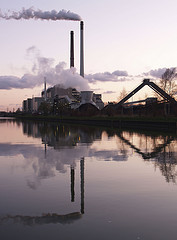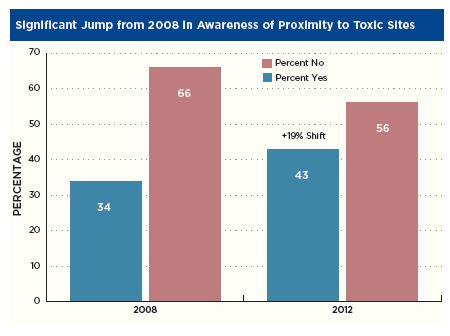Earlier this week I wrote about new Sierra Club and National Council of La Raza research that shows environmental values squaring solidly with Latino family values and personal lived experiences. Those attitudes hold true when it comes to coal; it’s a personal matter.
The poll found that 83 percent of Latinos surveyed agree that coal plants and oil refineries are a thing of the past and that we need to look toward the future and use more energy from clean sources.
When it comes to coal in particular, impacts on public health resonate as the strongest concerns for Latino voters.
- 86 percent find it concerning (66 percent “very concerning”) that “smog, soot, and other air pollution produced by coal-fired power plants can cause asthma attacks, and one out of every ten children suffers from asthma, with the incidence rate sixty percent higher among Latino children.”
- 85 percent find it concerning (66 percent = very) that “when coal is burned, it creates toxic waste ash, which is dumped in thousands of sites across the country where it can spill or seep into the ground and contaminate drinking water.”
- 85 percent are concerned (65 percent = very) that “burning coal creates toxic mercury, a dangerous toxin that particularly affects pregnant women and young children and leads to developmental problems and learning disabilities. This toxic mercury rains down onto rivers and streams and contaminates the fish that we eat.”
These direct impacts on public health are clearly not only serious concerns among Latino voters—polling shows that Americans across the political spectrum and regardless of demographics make the connection between pollution and health and favor standards that protect their families (A 2011 survey by Ceres found that 77 percent of Americans supported stronger protections to reduce emissions of mercury and other toxic air pollution from coal fired power plants.)
But it’s possible that on these matters Latinos feel more immediacy and urgency.
For one thing, as I wrote earlier, nearly half (47 percent) of Latino voters surveyed say they themselves or a close relative has suffered from asthma (or cancer 41 percent). In addition, 43 percent reported living or working near toxic sites like coal fired power plants (up from 34 percent in 2008).
Additionally, a 2008 analysis by Sierra Club indicates that Latino communities “face a disproportionate risk from toxic mercury pollution.” Coal-fired power plants are the country’s largest sources of mercury pollution. The research revealed that:
- 31 percent of Latinos fish regularly in local waterways;
- 76 percent of those eat and share what they catch with their families;
- And these families include young children and women of childbearing age, the two most vulnerable population sectors to mercury poisoning.
A study conducted by the University of California-Davis titled, “Fishing for Justice or Just Fishing,” revealed that Hispanic anglers fish close to their urban communities because of a lack of transportation options. The fish caught in urban areas tend to contain the highest concentrations of mercury contamination.
And this exposure is already showing high levels of mercury contamination among Hispanic anglers. According to another University of California-Davis study, Hispanic anglers in California on average ingest 13.9 micrograms of mercury per day via fish they catch, mostly in local waters. This is almost twice the Environmental Protection Agency’s safe limit.
The “Fishing for Justice or Just Fishing” study also found that this problem is compounded by several factors, the most important being the fact that fish advisories and warning signs posted near waterways are very rarely in Spanish.
A 2004 League of United Latin American Citizens report outlines additional factors adding up to disproportionate pollution exposure among Latinos and Hispanics. At that time, more than 13.5 million, or 35 percent of Hispanics, lived in areas that violated the federal air pollution standard for particulate matter and more than 19 million, or 50 percent of Hispanics, lived in areas that violated the federal air pollution standard for ozone, one of the major triggers for asthma attacks.
Food, kids, health. These are pretty basic concerns. But there are even more reasons coal is out of favor. Among Latino voters, the 2012 research also showed that health care costs associated with coal-burning plants as well as the political influence of big fossil fuel companies were also concerns related to coal.
The future is also in focus for Latino voters, it seems. Nearly 9-in-10 (87 percent) Latino voters said that with all wages and benefits being equal, they would prefer to work in the clean energy industry rather than at a fossil fuel company or oil refinery. Of those polled, 86 percent prefer that the government invest in clean, renewable energy like solar and wind, while just 11 percent of Latinos prefer investments in fossil fuels like coal, oil, and gas. Climate change is a concern for Latino voters as well.
In all, rather than continuing to witness the consequences of pollution from coal, Latino voters seem to be ready to leave coal in the dust—and move forward with smarter, healthier, and cleaner energy solutions and environmental policies that protect what’s most precious—children and family health, neighborhoods, community, culture, and beloved places.









